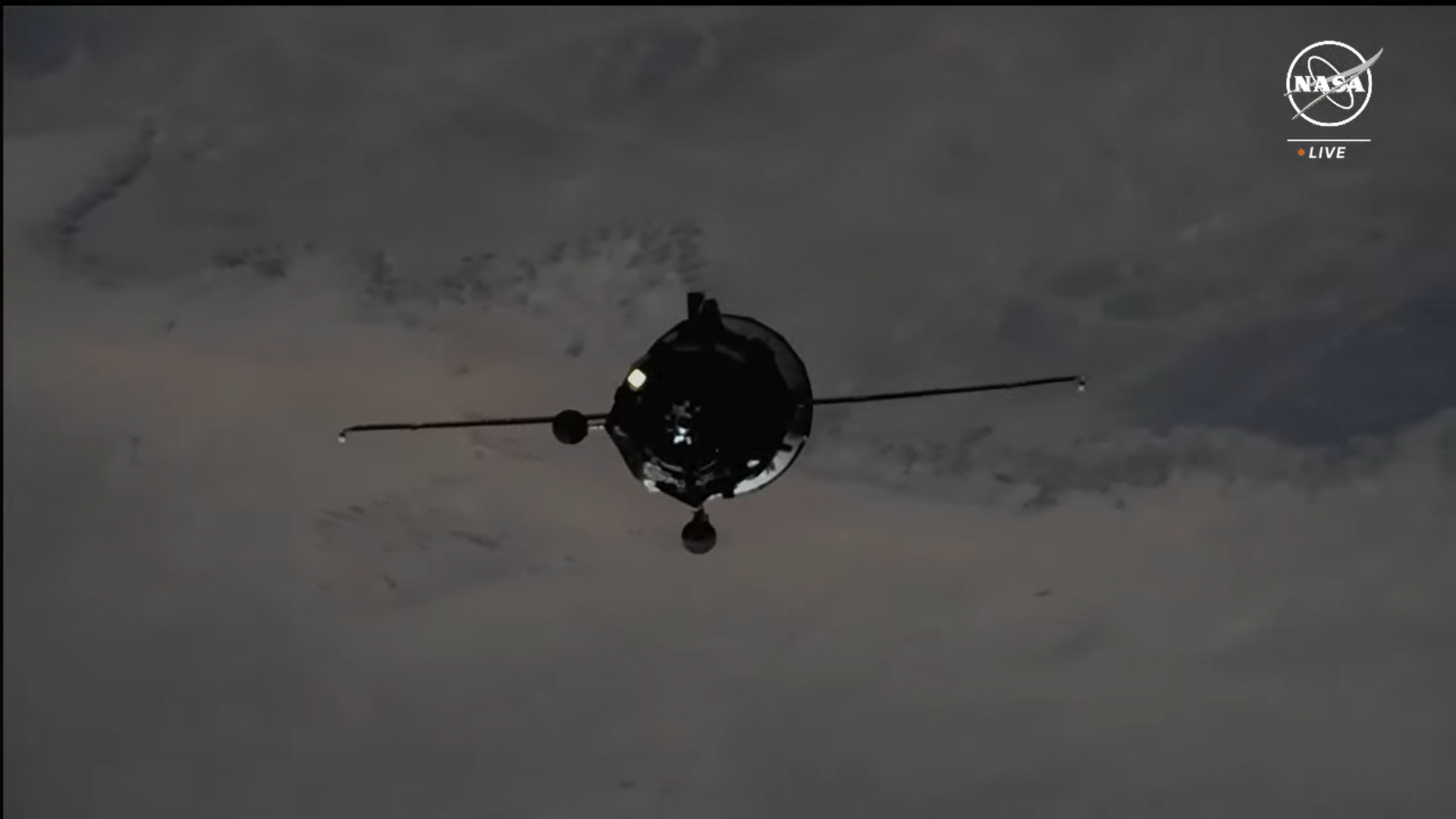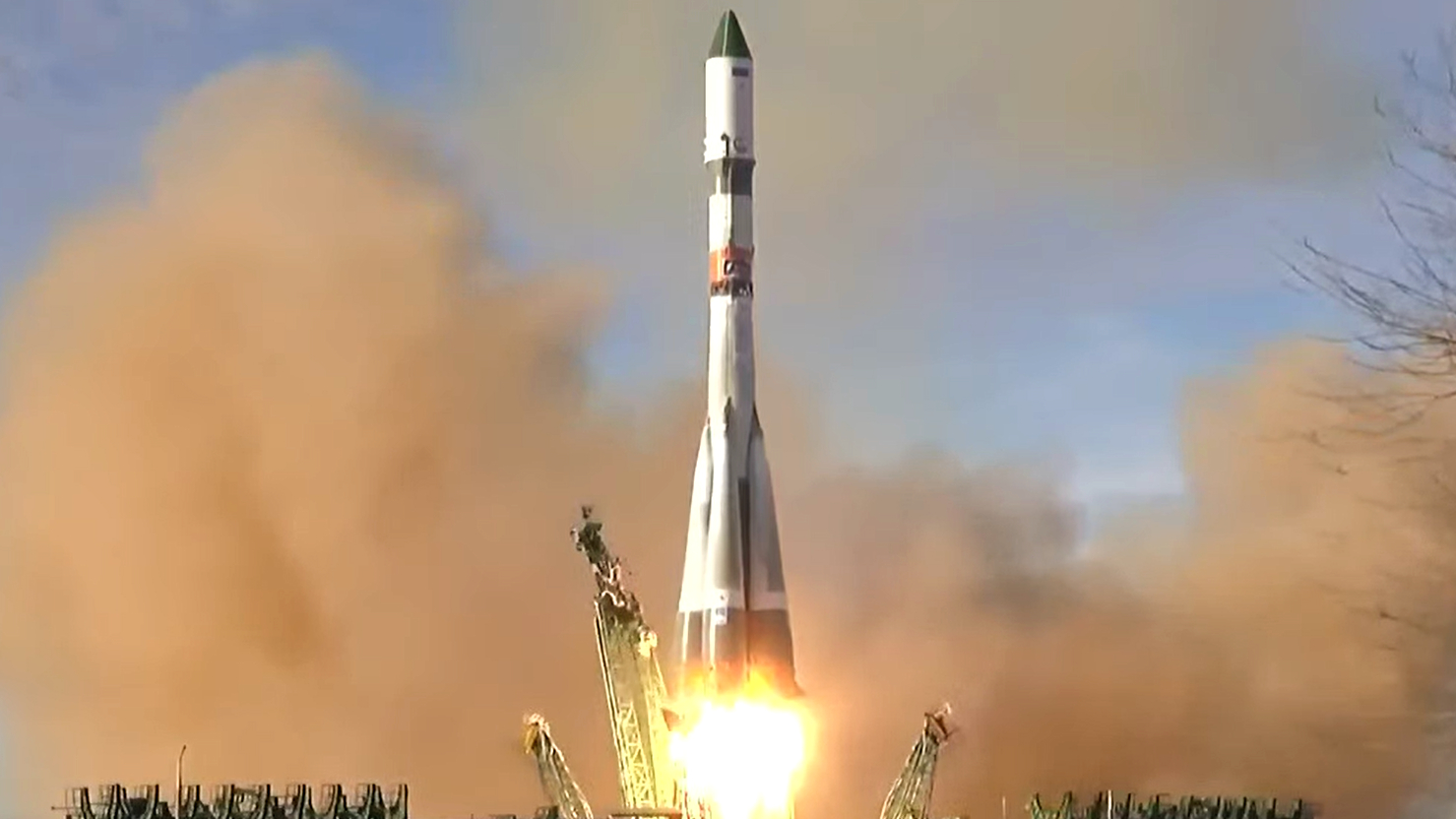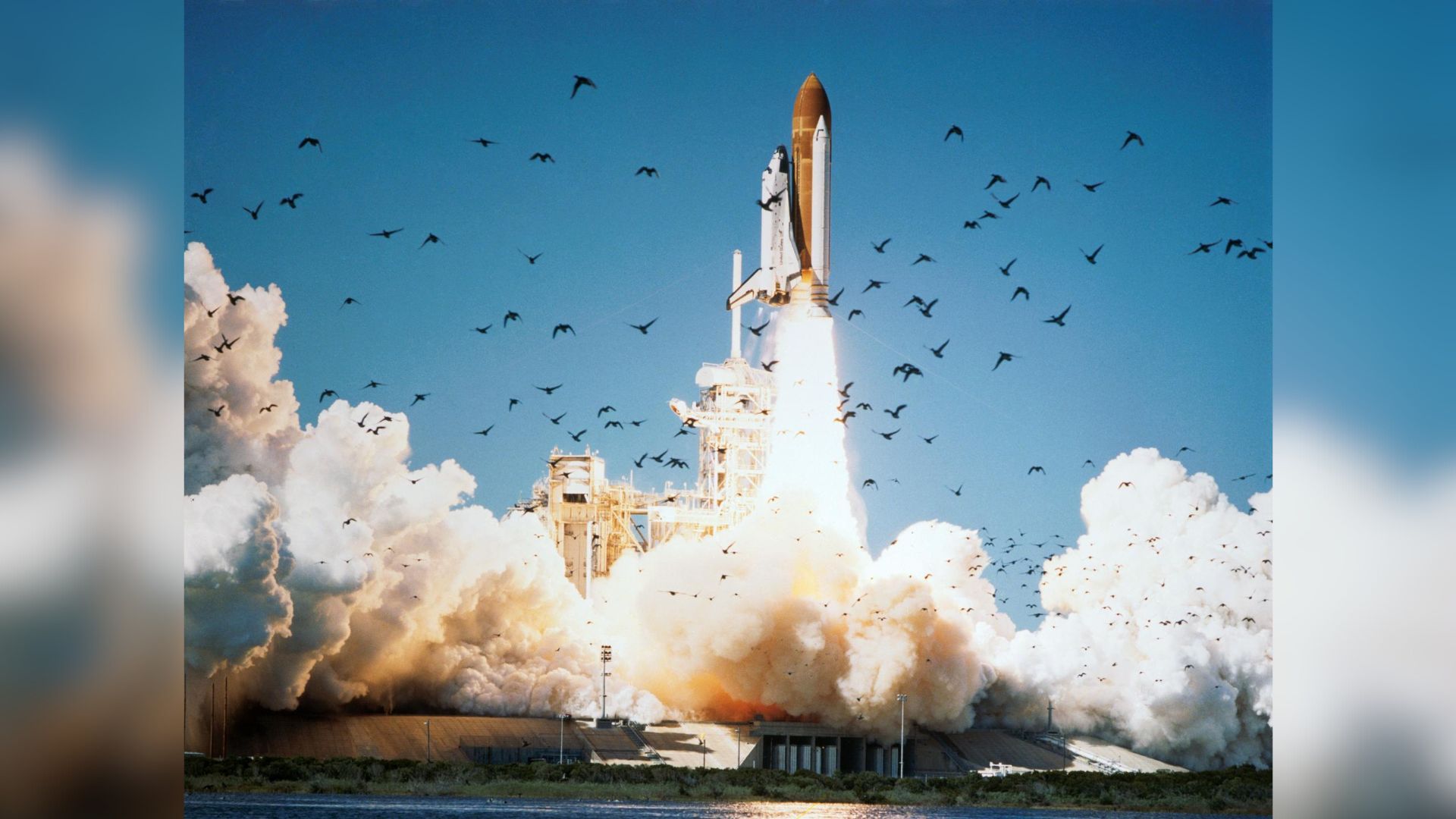Cosmonauts dock Russian Progress cargo ship to ISS on remote control after autopilot glitch
The Progress 86 cargo ship is carrying 2.7 tones of fresh supplies for the International Space Station crew.
Russian cosmonauts on the International Space Station (ISS) took manual control of an incoming cargo ship carrying tons of supplies after its automated rendezvous system suffered a glitch.
The unpiloted cargo ship, called Progress 86, docked to the station's Russian-built Poisk module under remote control by Roscosmos cosmonauts Oleg Kononenko and Nikolai Chub, who tracked its approach from inside the ISS. Kononenko took control of the cargo ship remotely using a system called TORU, while the Progress 86 craft was flying around the station at a range of about 150 meters, apparently due to an issue with the cargo ship's own Kurs automated rendezvous system.
"During the flyaround, the Progress vehicle started drifting away from the expected attitude and was not aligned with the docking target," NASA spokesperson Anna Schneider said during live commentary. "The crew aboard the International Space Station has taken over manual control and recovered the expected attitude."
Kononenko docked the Progress 86 spacecraft with the ISS at 6:18 a.m. EDT (1118 GMT), ending a two-day spaceflight that began Friday (Dec. 1) with a successful launch atop a Russian Soyuz rocket from Baikonur Cosmodrome in Kazakhstan. The cargo ship completed 37 orbits of Earth before docking.
"Contact confirmed, capture confirmed," Kononenko radioed to Roscosmos mission control near Moscow. The Progress 86 and ISS were sailing 260 miles over the western Pacific Ocean.
Progress 86 is carrying 5,600 pounds (2,540 kilograms) of supplies for the seven crewmembers currently living and working on the ISS. That haul includes food, equipment, supplies and science experiment gear tp be used by long-duration crews during their six-month stays on the station.
Russia's Progress spacecraft are one of several different vehicles used to periodically resupply the ISS. They are disposable and are designed to burn up in Earth's atmosphere at the end of their months-long missions. SpaceX's Dragon cargo ships and Northrop Grumman's Cygnus spacecraft also resupply the station.
Breaking space news, the latest updates on rocket launches, skywatching events and more!

Tariq is the award-winning Editor-in-Chief of Space.com and joined the team in 2001. He covers human spaceflight, as well as skywatching and entertainment. He became Space.com's Editor-in-Chief in 2019. Before joining Space.com, Tariq was a staff reporter for The Los Angeles Times covering education and city beats in La Habra, Fullerton and Huntington Beach. He's a recipient of the 2022 Harry Kolcum Award for excellence in space reporting and the 2025 Space Pioneer Award from the National Space Society. He is an Eagle Scout and Space Camp alum with journalism degrees from the USC and NYU. You can find Tariq at Space.com and as the co-host to the This Week In Space podcast on the TWiT network. To see his latest project, you can follow Tariq on Twitter @tariqjmalik.


